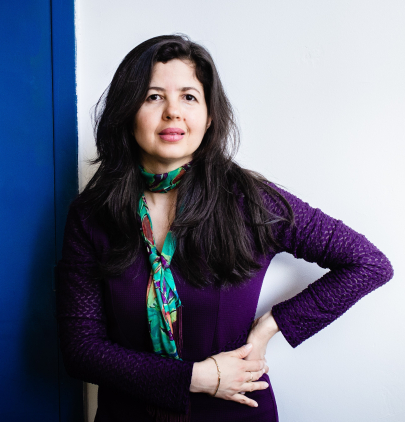Amanda Silva BrunVesicles for regenerative medicine
“My goal is to work in team to develop innovative therapies using extracellular vesicles and to understand the associated mechanisms,” comments Amanda Silva Brun from the Laboratoire Matière et Systèmes Complexes1 . Holding doctorates in both pharmacy and biology, her research activity extends from the design of technologies for producing and engineering extracellular vesicles (EVs) to their applications in regenerative medicine and the delivery of therapeutic agents. Since 2016, she has worked on developing a technology to mass produce these “cellular particles” that cells emit naturally, stimulating their release via a turbulent flow. At the same time, she is developing a treatment for digestive fistulas (abnormal communication between two organs for example), allowing the EVs to be held in the fistula by a hydrogel. To promote these innovations, in 2019 and 2020 the 37-year-old and her collaborators co-founded the two start-ups EverZom, dedicated to the production of vesicles, which is preparing for a second round of capital investment and has received multiple awards and distinctions, and Evora, on the treatment of fistulas, which is looking for investors wishing to focus on preparing for human clinical trials. She is their scientific advisor. Laureate of the ERC since last year, Amanda Silva Brun intends to focus her research also on mechanistic aspects.
- 1CNRS/Université de Paris.
